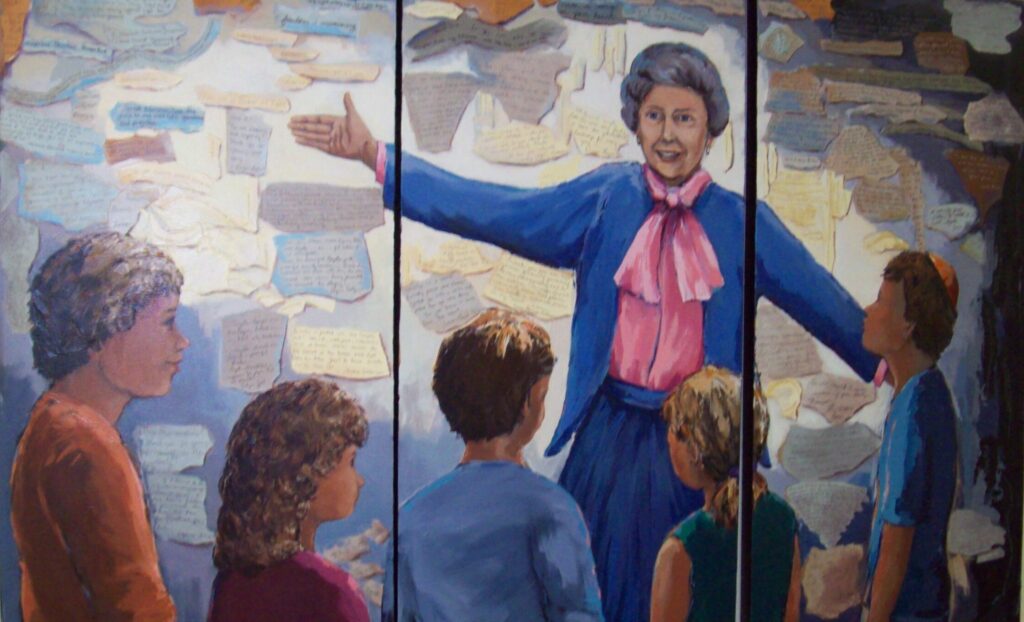Shelly Weiner (1937)
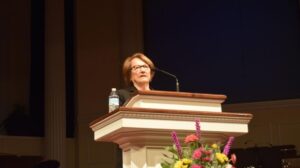
Born in Rovno, Poland, Shelly Weiner was just four years old when the Germans invaded Soviet-controlled Poland in June 1941, occupying her hometown. Six months later, the Nazis massacred 17,500 of the town’s Jewish residents, forcing the remaining Jews into a ghetto. By July 1942, these survivors were systematically murdered. Shelly and her mother managed to escape to the nearby village where her cousin Rachel Giralnik and her mother lived. They went into hiding on the farm of Christian neighbors until the Soviet army liberated their region in February 1944.
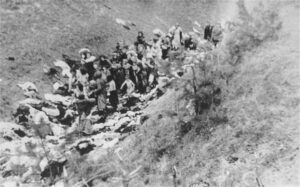
The Nazis formed a ghetto in Rovno, leaving about 5,000 Jews. These Jews were marched to the center of town, led to the edge where trenches had been dug, and shot. Among those killed were Shelly’s aunts, uncles, cousins, and grandfather. Forewarned by a Polish neighbor, Shelly’s mother snuck them out of the ghetto, walking to Rachel’s mother’s house that night.
Their first hiding place was a barn attic, barely big enough to sit or lie down. For 18 months, they endured extreme conditions: scarce food, no toilet, no bathing, and the inability to stand, walk, or make noise. They depended entirely on the kindness of their protectors, who faced constant suspicion and threats, particularly from Ukrainian nationalists. The family lived in constant fear, aware that their protector’s son, a leader among the nationalists, was the reason they remained undiscovered.
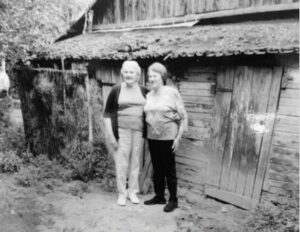
One terrifying night, their hiding spot was almost compromised. Tipped off, the family fled into the woods rather than face capture. They spent three days hiding in cornfields, without food or water, before returning to the farm, dehydrated and sick. They stayed in a trough in the barn for a week, a desperate and uncomfortable hiding place. Eventually, the farmer dug a hole in the woods for them, initially meant for his grain, and then expanded to hide them.
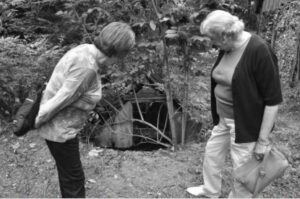
Despite these harsh conditions, their mothers showed immense bravery. Shelly’s Aunt Sonja would sneak out at night to trade hidden valuables for food and supplies, ensuring their survival. This bravery and resourcefulness were crucial, as many of their family members were captured and killed by Ukrainian nationalists.
In February 1944, the Russian army liberated the region. The farmer confirmed the news before taking the family into town, though they remained cautious as the war continued with bombings and air raids. Their journey to safety was fraught with hardships, including hunger, frostbite, and the constant threat of discovery.
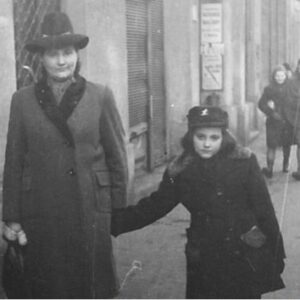
After the war, Shelly and her mother moved to Poland under Stalin’s decree. Still, they faced continued anti-Semitic violence, leading them to a Displaced Persons camp in Germany for three years. They planned to immigrate to Israel but ended up in the United States in 1949 after several unforeseen events. Rachel and her family remained in Soviet Ukraine until Stalin’s death, reconnecting with Shelly’s family in the late 1960s. Rachel and her family immigrated to the United States in 1980. Both families stayed in touch with the descendants of those who hid them, maintaining these important connections.
In 2013, Shelly and Rachel returned to their hometown and the farm where they hid, documenting their experiences in a video titled “Return to Rivne.” Shelly later contributed to Centropa’s teacher seminar program.
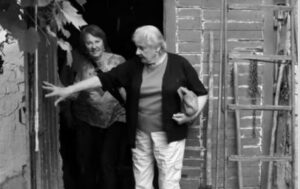
Shelly met Frank Weiner in high school in Philadelphia and married in 1958, moving to Greensboro in 1972. They have three daughters and five grandchildren. Rachel married Anatoly Kizhnerman in the Soviet Union in 1957, and they came to Greensboro in 1980, where they have one son and two grandchildren. Shelly and Rachel continue to share their Holocaust experiences across the state, ensuring that their stories of survival and resilience are never forgotten.
This is an NC HERO post. Part of the North Carolina Holocaust Education, Research, and Outreach Project.

